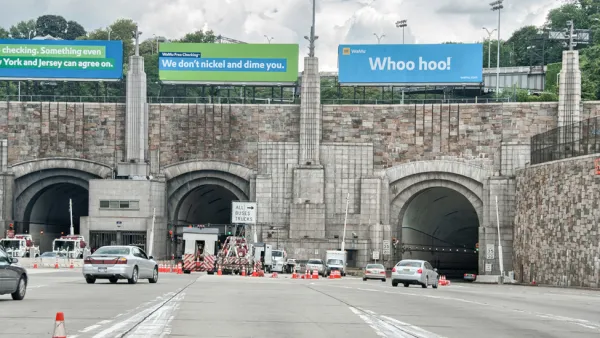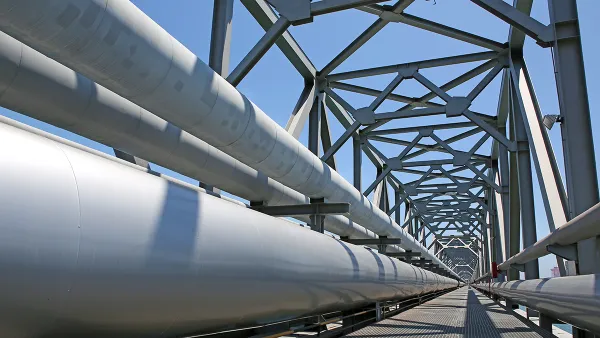Irvin Dawid discovered Planetizen when a classmate in an urban planning lab at San Jose State University shared it with him in 2003. When he left San Jose State that year, he took with him an interest in Planetizen, if not the master's degree in urban & regional planning.
As a long-time environmental activist, he formed the Sustainable Land Use committee for his local Sierra Club chapter and served six years on the Bay Area Air Quality Management District’s Advisory Council from 2002-2008. He maintains his interest in air quality by representing Sierra Club California on the Clean Air Dialogue, a working group of the Calif. Environmental Dialog representing business, regulatory and public health/environmental interests.
Major interests include transportation funding, e.g., gas taxes, vehicle miles traveled (VMT) fees, road tolls and energy subsidies that lead to unlevel playing fields for more sustainable choices.
He hails from Queens (Bayside) and Long Island (Great Neck); received an AAS in Fisheries & Wildlife Technology from SUNY Cobleskill and a B.S. from what is now Excelsior College.
After residing for three years on California’s North Coast, he’s lived on the San Francisco Peninsula since 1983, including 24 years in Palo Alto. Home is now near downtown Burlingame, a short bike-ride to the Caltrain station.
He’s been car-free since driving his 1972 Dodge Tradesman maxi-van, his means to exit Long Island in 1979, to the junkyard in 1988.
Major forms of transportation: A 1991 'citybike' and monthly Caltrain pass, zone 2-2. "It's no LIRR, but it may be the most bike friendly train in America."
Irvin can be reached at [email protected]

The Environmental Regulation Overturned by the New Interior Secretary on Day One
A dramatic entrance on horseback preceded one of Ryan Zinke's first actions as Secretary of the Department of Interior—rescinding guidance issued by the Fish & Wildlife Service to phase out the use of toxic, lead ammunition on federal lands.

Are Tiles Falling in Manhattan Tunnels?
In advance of unveiling his infrastructure plan on Tuesday night, President Trump pointed to the hazards posed by "missing tiles" in two New York City tunnels and wondered aloud how many had fallen on motorists. Answer: none.

President Trump's $1 Trillion Infrastructure Plan Just Became More Costly
While he has yet to explain how he would pay for the plan, the 'anti-regulation' president did add a costly and controversial requirement on Tuesday — a 'Buy America' provision that likely extends beyond the existing regulation.
How to Build a $12 Billion High-Speed Rail Line at No Cost to Taxpayers
Unlike the nation's more well-known high-speed rail project in California, the 205 miles-per-hour, Dallas-to-Houston bullet train will be almost entirely privately financed. How is that possible?

More than Twenty Bills Introduced in Texas Legislature to Stop High-Speed Rail
The California high-speed rail project is not alone in confronting legal and political obstacles. The main issue in Texas that has aroused opposition to the privately financed, 240-mile Dallas to Houston bullet train is the use of eminent domain.

























